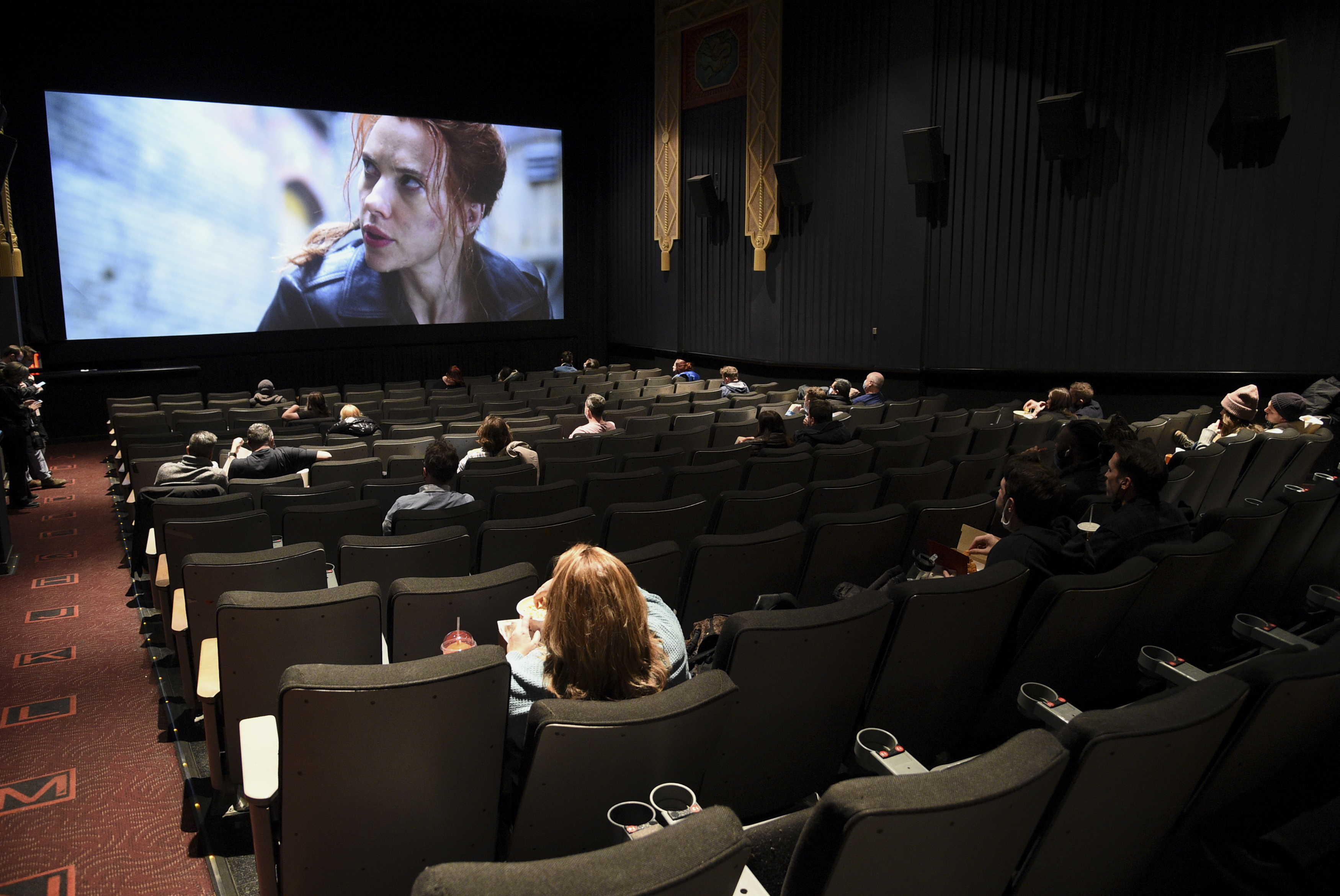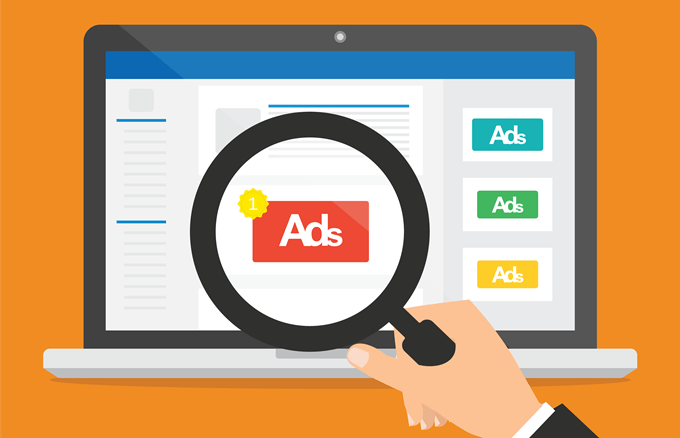 I’m in the middle of a discussion with someone on this and I thought it would be easier to get my thoughts out on it here than to try to do it on a forum somewhere, so here we go.
I’m in the middle of a discussion with someone on this and I thought it would be easier to get my thoughts out on it here than to try to do it on a forum somewhere, so here we go.
Why are people not willing to just throw money out, just because producers really want them to? Let’s take a look at it because a lot of people can’t figure out why it doesn’t work.The discussion at hand has to do with YouTube and ad blockers but I’m probably going to go another direction here. The other person wants people to sit through ads on every YouTube video because “that’s how YouTube makes its money”. Except that’s not really how it works and I had to describe the reality of it and they didn’t like it. Let me run you through that really quickly here:
 An advertiser, say someone selling a widget, they buy ad space on YouTube to put their commercials in front of the eyes of prospective consumers. It is only worth it to the advertiser if more people buy their widget after seeing the ads than did beforehand. They don’t really give a damn how many people watch it, they only care if that translates to increased sales and this is where my opponent doesn’t really understand how things work.
An advertiser, say someone selling a widget, they buy ad space on YouTube to put their commercials in front of the eyes of prospective consumers. It is only worth it to the advertiser if more people buy their widget after seeing the ads than did beforehand. They don’t really give a damn how many people watch it, they only care if that translates to increased sales and this is where my opponent doesn’t really understand how things work.
His argument is that we have a “duty,” and granted that’s my word not his, to sit there and watch every video that YouTube can throw at us so that YouTube keeps getting paid so they can stay in business. Except that’s not why anyone is buying ads. If you were actually trying to “keep YouTube in business”, you’d have to go out and buy the products of every single advertiser because that’s what keeps them placing ads, not just the impressions.
Yet he doesn’t want to do that because, obviously, he doesn’t want to spend the money to keep YouTube in business. It’s the same reason he isn’t paying for YouTube Red. The value of the content he consumes isn’t worth the cost of the product that he’s being asked to purchase.
We all do a cost/benefit analysis any time we’re given a choice like this. Is that product worth the price that we’re being asked to pay? Yes or no. So this is where I’m going to go off into something else and, in fact, I’m going to go old-school, just because I think it offers me some clearer choices in the example. Please indulge me.
 Let’s say that there’s a new movie that just came out. It’s only available in theaters. You have to consider a lot of things. Do you want to see this movie? Yes. The movie is, for the sake of argument, $15 to get a seat. Is that movie worth $15? Yes or no? Well if you say no, then you have to consider other options. Maybe a matinee? Is it worth $12 to see the movie? That’s up to you to decide.
Let’s say that there’s a new movie that just came out. It’s only available in theaters. You have to consider a lot of things. Do you want to see this movie? Yes. The movie is, for the sake of argument, $15 to get a seat. Is that movie worth $15? Yes or no? Well if you say no, then you have to consider other options. Maybe a matinee? Is it worth $12 to see the movie? That’s up to you to decide.
Let’s say you decide that it still isn’t worth it to see the movie. So you wait. You wait until it shows up in the rental store. I know those don’t really exist anymore but let’s pretend. You go in and you can rent the movie for $8. Is that worth it to you? Yes or no? How about $5? Maybe there’s a deal. It just goes on and on and on until you either decide that it’s worth it to see the movie or you don’t. Eventually, it comes on TV for free and you don’t have to pay anything. You traded timeliness for cost but it was your decision and nobody can tell you if that decision was right or wrong.
 Now the producers of the product would much prefer that you see the movie when it’s new and most expensive because that’s when they make the most money. You would prefer to see it at it’s least expensive or free because money is a finite resource. There are always going to be trade-offs. It might not even be a matter of money at all. I don’t go to movie theaters anymore. It has nothing to do with the money, although I have to admit that most movies simply aren’t worth the ticket price, I just don’t like the experience. I’d much rather wait until the movie comes out on Blu-ray and I can sit at home in front of my TV and watch it at my leisure. I don’t have to worry about stupid people talking on their phone, kicking the back of my chair, I can get up and go to the bathroom, I can eat whatever I want, not stale, overpriced popcorn and I can do it when I want and as many times as I want. The theater experience, in my opinion, is vastly overrated. Therefore, I don’t care about price, I care about the experience of watching the movie.
Now the producers of the product would much prefer that you see the movie when it’s new and most expensive because that’s when they make the most money. You would prefer to see it at it’s least expensive or free because money is a finite resource. There are always going to be trade-offs. It might not even be a matter of money at all. I don’t go to movie theaters anymore. It has nothing to do with the money, although I have to admit that most movies simply aren’t worth the ticket price, I just don’t like the experience. I’d much rather wait until the movie comes out on Blu-ray and I can sit at home in front of my TV and watch it at my leisure. I don’t have to worry about stupid people talking on their phone, kicking the back of my chair, I can get up and go to the bathroom, I can eat whatever I want, not stale, overpriced popcorn and I can do it when I want and as many times as I want. The theater experience, in my opinion, is vastly overrated. Therefore, I don’t care about price, I care about the experience of watching the movie.
That all brings us back to YouTube. I am happy to say that I use ad blockers everywhere. I have no interest in watching ads because I am not swayed in any way by their attempts to get me to buy the products. It is therefore a waste of my time to sit through the ads in the first place. You have to earn my consumer dollar by having a worthwhile good or service, not by flashing pictures on a screen. Therefore I am completely opting out of the process. If that negatively impacts YouTube, that’s not my problem, it’s theirs. I never signed a legally-binding contract that I would sit through ads, any ads, anywhere. Even back when broadcast TV was a thing, I didn’t watch commercials. I couldn’t stop them from coming on the screen but I could switch channels or leave the room. You cannot force me to sit through your commercials. Deal with it and even if you could, it wouldn’t do your advertisers any good. Being forced to watch is more likely to make me resistant to the products. It’s doing exactly the opposite that they want.
 The simple fact is, YouTube and most other websites out there, they have chosen to go the ad route because it’s cheap and easy, not because it’s effective. They don’t even have to do any work. They just contract some other company to send the ads by and they get a tiny slice of the pie in return. It’s low-effort and low-return but that’s what they’ve chosen to do. You know who was never consulted in any of this?
The simple fact is, YouTube and most other websites out there, they have chosen to go the ad route because it’s cheap and easy, not because it’s effective. They don’t even have to do any work. They just contract some other company to send the ads by and they get a tiny slice of the pie in return. It’s low-effort and low-return but that’s what they’ve chosen to do. You know who was never consulted in any of this?
The consumer. Because they don’t really give a damn about the consumer. There are lots of other ways that these companies could go but that requires time and effort and has the potential to cost them views and that’s not what they want to do.
Too bad. You don’t get to co-opt my eyes because you make money off of it. There has to be an agreement here between the company and the consumer and nobody ever bothers to ask. I was assured that YouTube was worth my time and money, otherwise I’d never go there in the first place. I don’t think that it is. I’ve done the cost/benefit analysis and while YouTube might be a place to waste some free time, it just isn’t worth any money. If they decided to put it behind a pay wall, I’d just go somewhere else. I’d read a book. I’ve got plenty of those stacking up already. YouTube is valuable only in so far as it’s easy to jump on and off on a whim. I don’t owe YouTube anything. They can either be a product that I want to use at a price I’m willing to pay or they can go away. It doesn’t matter to me.
 It’s no different than Hollywood or McDonalds. I’ll go to McDonalds so long as they have food that I want to eat at a price that I’m willing to pay. If they start charging $20 for a hamburger, screw them. I’ll go elsewhere or I’ll just stay home and make a sandwich. Their value is in their utility, nothing more.
It’s no different than Hollywood or McDonalds. I’ll go to McDonalds so long as they have food that I want to eat at a price that I’m willing to pay. If they start charging $20 for a hamburger, screw them. I’ll go elsewhere or I’ll just stay home and make a sandwich. Their value is in their utility, nothing more.
This is something that companies need to understand. They need to make their products worth it. Instead, they just rely on the fact that most people are gullible idiots. I am not. Therefore, your tactics just don’t work on me and, truth be told, they shouldn’t work on anyone else. It’s really sad that they do though. Very sad indeed.
The really funny part of this, from my perspective, is that the most entertaining commercials are usually for services and products I am rarely or never going to purchase. The best examples are beer commercials; I usually watch and enjoy them, but I hate beer! On the other hand, there are those new “edgy” advertisements that attack their core demographic; such as the infamous Gillette commercials about “toxic masculinity”. What were they thinking? What’s the message? “We hate you, so buy our product!”
I don’t find much of it entertaining, which is why I use ad blockers everywhere that I can. If I’m running YouTube on the TV through the Xbox, I can’t run ad blockers and therefore I have to sit through them and I can’t say I’ve ever seen one that I didn’t find utterly obnoxious. I’ve taken on content like that on the YouTube channel, back when I did political videos, and I did go after the Gillette commercial, as well as some shoe commercials that are just over-the-top cringy. I don’t get how they expect to attract people to buy their stuff when the commercials aren’t actually about their products.